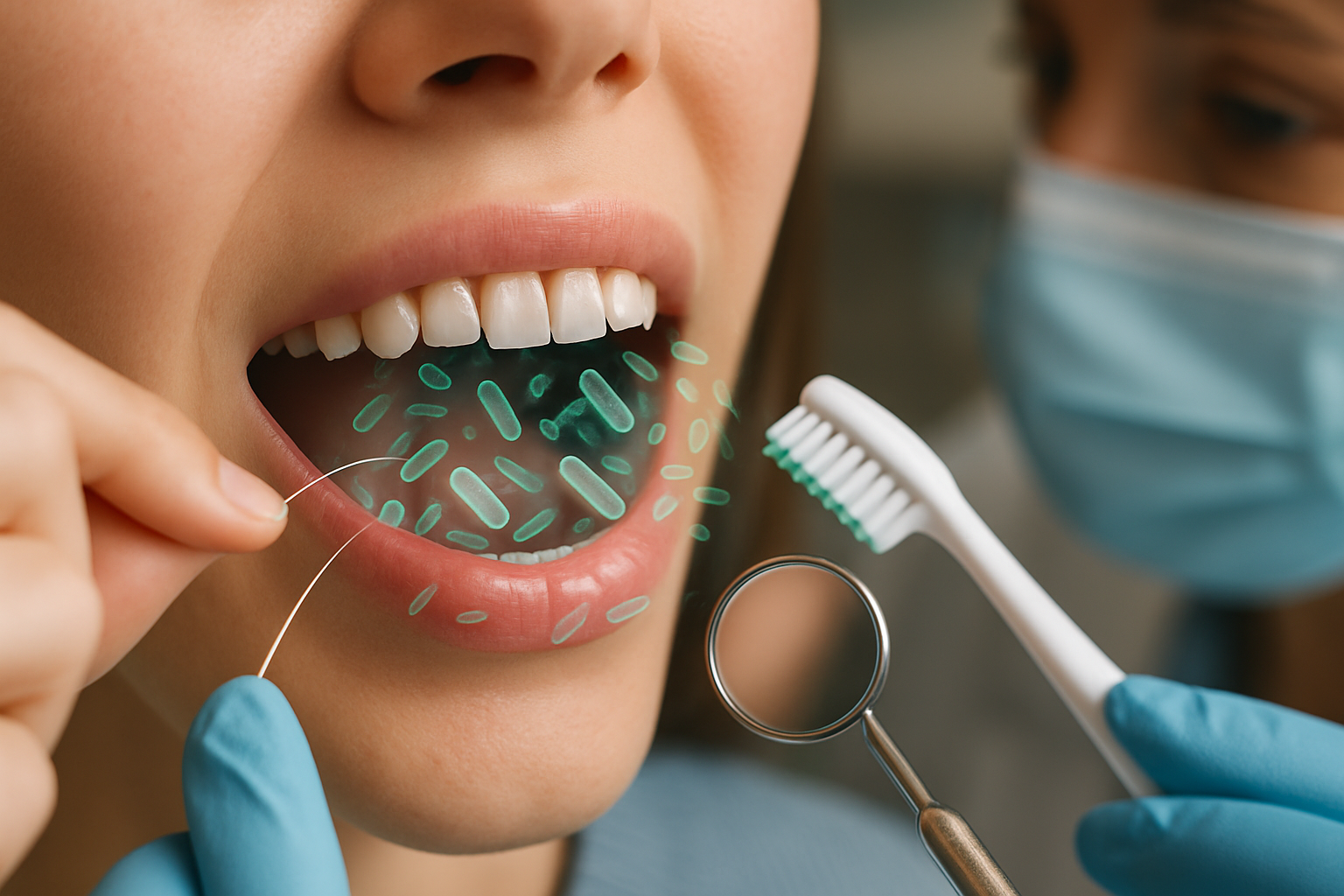Learn About the Causes & Prevention of Bad Breath: A Complete Guide
Bad breath, medically known as halitosis, affects millions of people worldwide and can significantly impact personal and professional relationships. Understanding the underlying causes and implementing effective prevention strategies can help you maintain fresh breath and boost your confidence. This comprehensive guide explores the science behind bad breath, identifies common triggers, and provides practical solutions for long-term oral health management.

What is Bad Breath and How Does It Develop?
Bad breath occurs when bacteria in your mouth break down food particles, proteins, and dead cells, producing sulfur compounds that create unpleasant odors. Your mouth naturally harbors hundreds of bacterial species, and when oral hygiene becomes inadequate, these microorganisms multiply rapidly. The tongue’s surface, with its numerous crevices and papillae, provides an ideal environment for bacteria to thrive and produce volatile sulfur compounds responsible for most cases of halitosis.
Poor saliva production also contributes to bad breath development. Saliva acts as your mouth’s natural cleanser, washing away food debris and neutralizing acids produced by bacteria. When saliva flow decreases, such as during sleep or due to certain medications, bacterial growth increases dramatically, leading to morning breath or persistent halitosis throughout the day.
Common Indicators of Bad Breath You Should Recognize
Recognizing bad breath symptoms helps you address the issue promptly and effectively. The most obvious indicator is a persistent unpleasant taste in your mouth, often described as metallic, sour, or bitter. You might notice a white or yellow coating on your tongue, particularly toward the back, which indicates bacterial buildup and dead cell accumulation.
Other warning signs include dry mouth sensations, increased thirst, and comments from family members or close friends about your breath odor. Some people experience a burning sensation on their tongue or notice that others step back during conversations. Pay attention to these social cues, as many people are reluctant to directly mention breath concerns due to embarrassment or politeness.
Signs & Causes of Bad Breath Beyond Poor Oral Hygiene
While inadequate brushing and flossing remain primary causes, several underlying conditions contribute to chronic bad breath. Gum disease, or periodontal disease, creates deep pockets between teeth and gums where bacteria accumulate and produce toxins. These infections generate persistent odors that regular brushing cannot eliminate without professional treatment.
Medical conditions such as diabetes, liver disease, kidney problems, and respiratory infections can cause distinctive breath odors. Gastroesophageal reflux disease (GERD) allows stomach acids to travel upward, creating sour breath smells. Sinus infections, tonsil stones, and postnasal drip also contribute to halitosis by providing additional bacterial breeding grounds in your throat and nasal passages.
Certain medications, including antihistamines, antidepressants, and blood pressure medications, reduce saliva production as side effects. Tobacco use not only creates its own odor but also increases bacterial growth, reduces oxygen levels in your mouth, and contributes to gum disease development.
Foods That Cause Bad Breath and Their Impact
Specific foods contain compounds that enter your bloodstream and affect your breath through your lungs, not just your mouth. Garlic and onions contain sulfur compounds that remain active for up to 72 hours after consumption, regardless of brushing or mouthwash use. These compounds travel through your digestive system, enter your bloodstream, and are expelled through your lungs during breathing.
Coffee creates an acidic environment in your mouth and can reduce saliva production, leading to bacterial growth. Alcohol has similar effects, causing dehydration and reducing your mouth’s natural cleansing mechanisms. High-protein foods, dairy products, and sugary snacks provide fuel for bacteria, while acidic foods like citrus fruits and tomatoes can temporarily increase bacterial activity.
Crash diets and fasting can cause ketosis, a metabolic state that produces acetone-like breath odors. Low-carbohydrate diets often trigger similar effects as your body burns fat for energy instead of glucose, creating ketones that affect your breath quality.
Ways to Reduce Bad Breath Through Daily Habits
Effective bad breath prevention starts with consistent oral hygiene practices performed correctly. Brush your teeth for at least two minutes twice daily using fluoride toothpaste, paying special attention to your tongue’s surface where bacteria concentrate most heavily. Use a tongue scraper or your toothbrush to gently clean your tongue from back to front, removing bacterial buildup and food debris.
Floss daily to remove plaque and food particles between teeth where toothbrushes cannot reach effectively. Consider using an antimicrobial mouthwash containing zinc or chlorine dioxide, which neutralize sulfur compounds more effectively than alcohol-based products that can dry your mouth.
Stay hydrated by drinking plenty of water throughout the day to maintain adequate saliva production. Chew sugar-free gum containing xylitol to stimulate saliva flow and inhibit bacterial growth. Replace your toothbrush every three to four months, and schedule regular dental cleanings and checkups to address potential problems before they worsen.
Avoid tobacco products entirely, limit alcohol consumption, and consider timing your consumption of odor-causing foods when social interactions are minimal. If you take medications that cause dry mouth, discuss alternatives with your healthcare provider or ask about artificial saliva products that can help maintain oral moisture levels.
Professional Treatment Options and When to Seek Help
If home remedies and improved oral hygiene don’t resolve your bad breath within a few weeks, consult your dentist or physician for professional evaluation. Dentists can identify and treat gum disease, tooth decay, and other oral health issues contributing to halitosis. Professional cleanings remove tartar buildup that regular brushing cannot eliminate, and your dentist may recommend specialized products or procedures based on your specific situation.
For breath problems related to medical conditions, your physician can adjust medications, treat underlying infections, or refer you to specialists for comprehensive care. Some cases may require coordination between dental and medical professionals to address both oral and systemic causes effectively.
This article is for informational purposes only and should not be considered medical advice. Please consult a qualified healthcare professional for personalized guidance and treatment.




